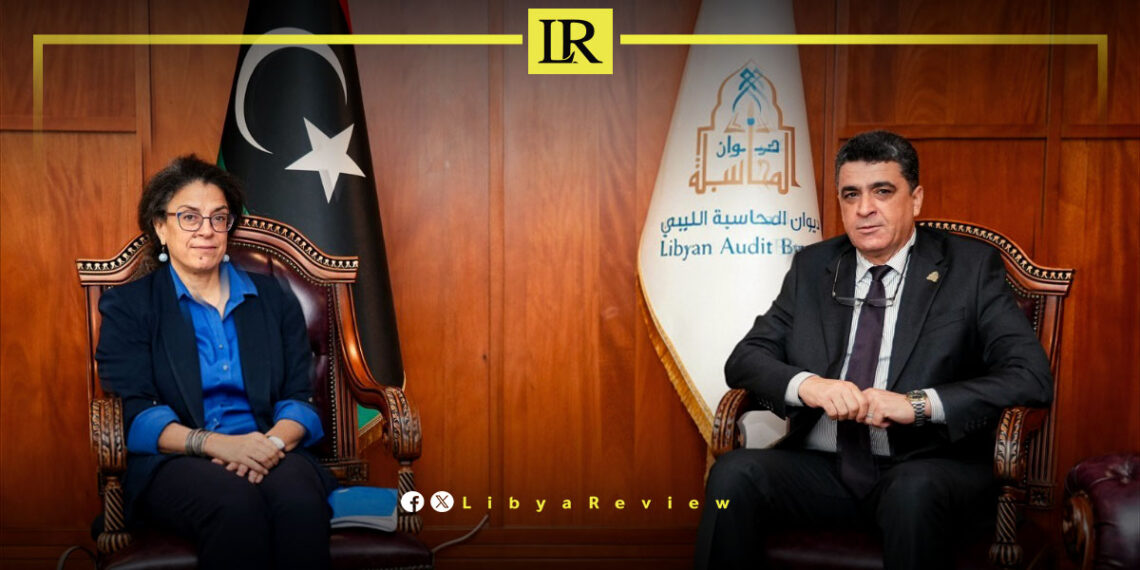Libya’s Audit Bureau and the United Nations Support Mission in Libya (UNSMIL) held high-level talks in Tripoli on Wednesday to strengthen cooperation on financial oversight, transparency, and anti-corruption measures.
Audit Bureau President Khaled Shakshak met with Stephanie Khoury, the UN Deputy Special Representative for Political Affairs, and her accompanying delegation at the Bureau’s headquarters in the Libyan capital.
The meeting focused on enhancing governance mechanisms, promoting accountability, and reinforcing institutional integrity across Libya’s public sector.
Shakshak reaffirmed the Audit Bureau’s commitment to ensuring sound financial management and protecting public resources, describing transparency and accountability as fundamental pillars of sustainable governance. He emphasized that the Bureau’s mission is to safeguard national wealth and improve efficiency in government spending through rigorous oversight and modern auditing practices.
Khoury praised the Bureau’s efforts and stressed the UN’s continued support for its independence and professionalism. She noted that strong, impartial oversight institutions are essential for restoring public trust and advancing reform within Libya’s public administration.
The UN delegation also commended the launch of Libya’s National Anti-Corruption Strategy, developed jointly by the Audit Bureau and the National Anti-Corruption Authority. The strategy aims to modernize internal controls, strengthen financial governance, and combat misuse of state funds. Khoury said that its success will depend on political will and practical cooperation between all national institutions.
She also referred to UN Special Representative Hana Tetteh’s recent briefing to the UN Security Council, in which she highlighted Libya’s progress on transparency and reaffirmed the UN’s support for the country’s reform efforts.
At the conclusion of her visit, Khoury met staff members at the Audit Bureau and commended their dedication to institutional reform. She reiterated UNSMIL’s readiness to provide technical support and expertise to help improve public financial management, combat corruption, and promote good governance in Libya.


